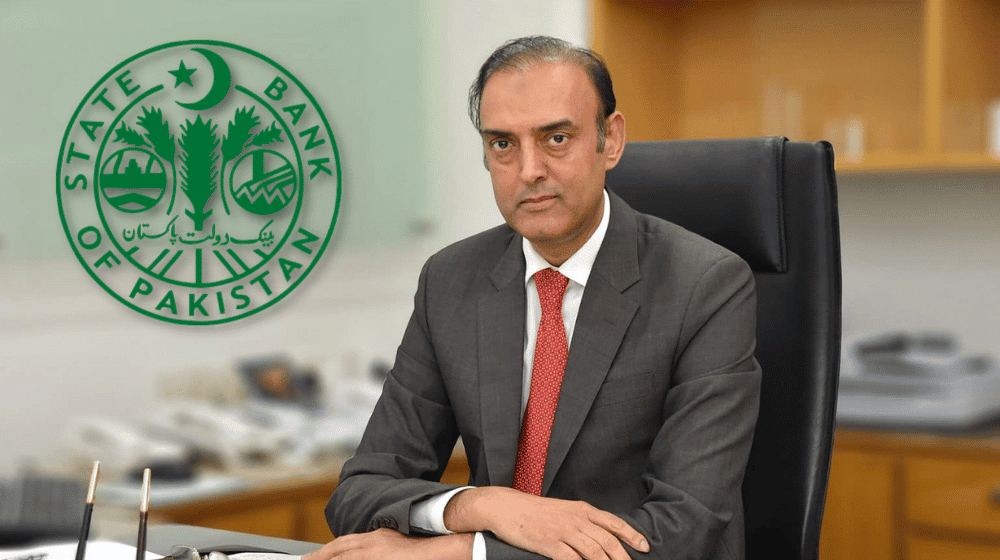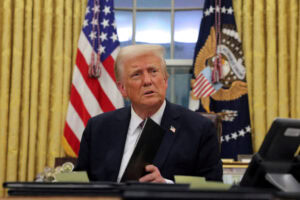KARACHI: Governor of the State Bank of Pakistan (SBP), Jameel Ahmed, on Monday stated that Pakistan has successfully emerged from a period of severe macroeconomic distress, characterized by soaring inflation, falling foreign exchange reserves, and fears of default, and has now entered a phase of renewed economic stability, investor confidence, and gradual growth revival.
Speaking at the Pakistan Stock Exchange (PSX) during a gong ceremony, the SBP chief emphasized a noticeable turnaround in several key economic indicators, portraying a more optimistic outlook for the economy.
“Inflation has eased considerably, the current account has shifted into surplus, foreign exchange reserves have improved, and public debt metrics are now more favorable than in the past two years,” he remarked.
According to Mr. Ahmed, this shift towards stability has not occurred by chance but has been the result of difficult policy decisions aimed at realigning the economy.
With macroeconomic fundamentals stabilizing, he said Pakistan is now positioned to embark on a path of inclusive and broad-based growth.
He highlighted the urgent need for the country to reorient its growth model, placing productivity enhancement and export-led development at the center.
“Exports are not just a source of foreign earnings; they drive innovation, productivity, and attract foreign investment,” he noted.
Mr. Ahmed called for collective commitment from all stakeholders, including policymakers, businesses, and regulators, to adopt a long-term, reform-driven approach that can break Pakistan’s historical cycle of boom and bust.
He warned that without deep structural reforms, the country risks falling back into economic stagnation.
Reaffirming the SBP’s ongoing mission, he said the central bank remains fully committed to building a resilient and inclusive financial system, backed by a strong regulatory environment and robust financial infrastructure.
Pakistan Financial Literacy Week 2025 Kicks Off
The SBP governor also highlighted the launch of Pakistan Financial Literacy Week (PFLW) 2025, which is being observed nationwide from April 14 to 18.
Organized to raise awareness on financial literacy across diverse demographic groups, the initiative underscores SBP’s emphasis on financial education as a cornerstone of economic empowerment.
At the inaugural ceremony held at the National Institute of Banking and Finance (NIBAF) in Karachi, Mr. Ahmed unveiled the National Financial Education Roadmap, a strategic framework designed to enhance access to financial services and equip citizens with essential financial knowledge.
Read More: Governor SBP: Pakistan and IMF to Reach SLA Agreement Soon
The event brought together a wide array of stakeholders from across the financial industry to align on the theme of the week — “Financial Inclusion through Collaboration and Innovation.”
Mr. Ahmed reiterated that financial inclusion is a central focus of the SBP’s Strategic Vision 2028, which aims to develop a modern, digital, and inclusive financial ecosystem.
Key Financial Inclusion Targets
The SBP governor laid out ambitious targets under the National Financial Inclusion Strategy (NFIS) 2024–28:
Increasing overall financial inclusion from the current 64% to 75% by 2028
Narrowing the gender gap in financial services from 34% to 25% within the same period
He credited recent gains in financial inclusion to various SBP-led initiatives and praised the banking industry, fintechs, and development partners for their collaboration in advancing financial literacy efforts.
Role of PSX and Capital Markets
Appreciating the Pakistan Stock Exchange’s efforts in providing an efficient capital-raising platform, Mr. Ahmed underscored the importance of well-functioning capital markets in fueling economic growth.
He noted that PSX offers both corporates and investors valuable opportunities—businesses can access funding for expansion, while investors can earn strong returns.
Also Read: Remittances Hit Record High of $4.1B in March, SBP Governor
In closing, Mr. Ahmed reiterated that while macroeconomic conditions have stabilized, the real challenge lies in ensuring sustainable, inclusive growth.
He called on all stakeholders to seize this moment of relative calm to push forward with reforms, invest in innovation, and expand economic opportunities for all segments of society.









